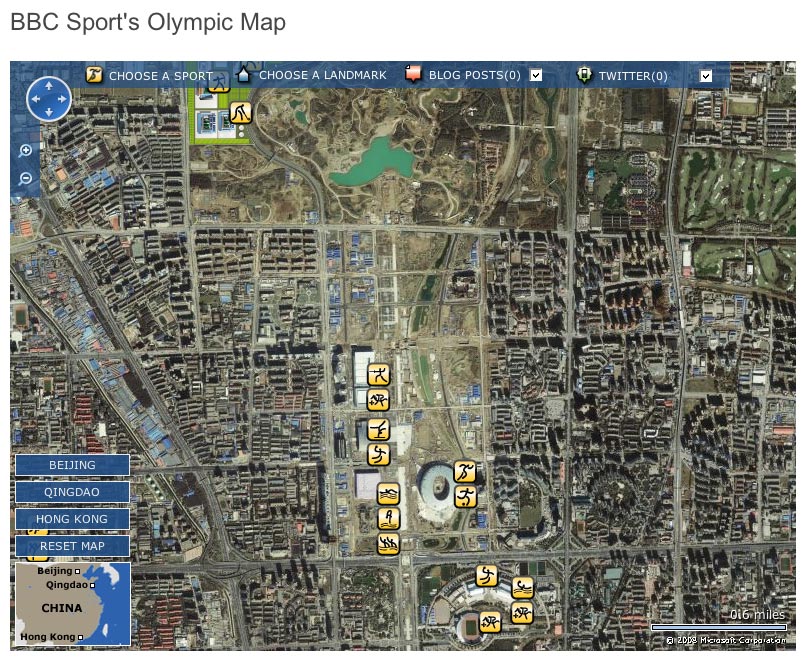Freelance journalist Dave Green reports for Journalism.co.uk from Beijing:
With the Olympic Games under way in Beijing, the political controversies surrounding the competition have taken a backseat while the world’s elite athletes grab the headlines.
There is a mood of optimism here that is difficult to define and a sense on the ground that the opening ceremony was a defining moment in history, one which it can be hoped will give China the confidence to move forward with the openness to question its past and, perhaps, admit to some mistakes.
Yet old media habits die hard: even foreign China Daily columnist Brendan John Worrell‘s assessment of the investment in “vital infrastructure” that has contributed to one of the most remarkable urban facelifts in history ignores the fact that many people have had their homes destroyed or walls constructed around their unsightly communities in the process.
Worrell conveniently ignores the protests in Tiananmen Square – perhaps unsurprising as the women marching against enforced relocations were given no coverage in the commercial press here – but he does go on to make a good point about China’s need to address “new pressing goals.”
Over on the country’s newsdesks, it took the influence of foreign editors to ensure the reporting of a US tourist’s murder received due prominence on the front pages and was not buried. Other coverage did not benefit from the same influence: the Xinhua News Agency’s report of five Tibet protesters detained in Tiananmen Square on the same day was tacked onto the bottom of the same reports of the tourist attack.
Perhaps the sheer insanity of protesting against repression in Tibet can justifiably be likened to that of stabbing three people and then committing suicide? Or perhaps it’s just because searching for the article online using the terms ‘Tibet’ and ‘protest’ will garner no references at all.
As Western eyes begin to adjust to the dark fact that the overwhelming security presence in Beijing may well be a necessary precaution given the attacks in the western Xinjiang Province, the media here is celebrating the mobilization of around 400,000 street-level forces. Yet you can’t help but feel that relishing the deployment of a 70,000–strong army of grandma vigilantes, as China Daily does, is a bridge too far.
The China Daily piece strikes an uneasy tone that veers between sinister and depreciating:
“Mind the suspicious strangers. You see one smoking guy over there is glancing this way and that, watch him, and report to the police station immediately once something is wrong,” it quotes 65-year-old Sun Li as saying.
“[C]atching bad guys is a policeman’s job but we’re here to help out and drink more water to prevent us fainting in this sunshine,” it concludes.
There are more serious issues to be resolved, in particular protests by the International Federation of Journalists over the constant presence of plainclothes police in the capital allegedly monitoring journalists, and more demonstrations will surely follow.
But, as Beijing’s media and its people feel the push and pull of global forces, it is safe to say that progress of a sort is being made. The key question remains what will happen after the circus leaves town, and will there will be enough residual pressure to keep the concessions that have already been made in place?
